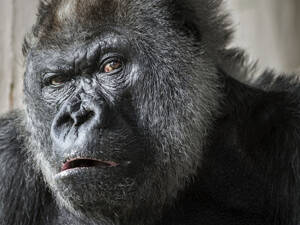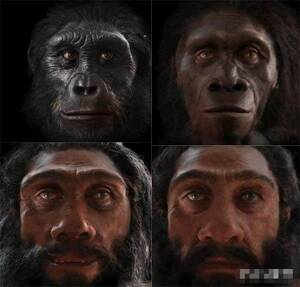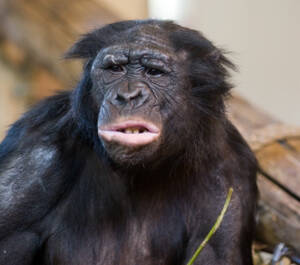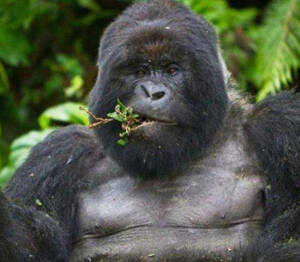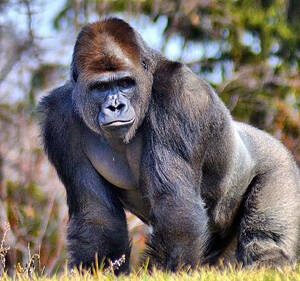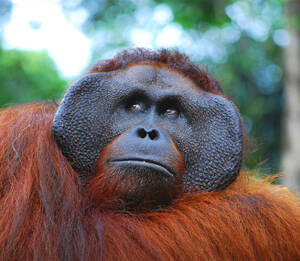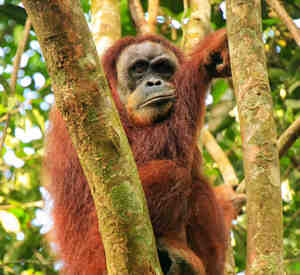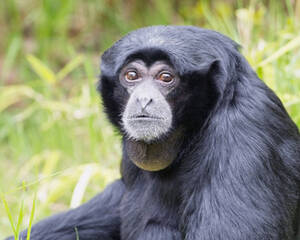Piliocolobus gordonorum
IUCN
LCBasic Information
Scientific classification
- name:Piliocolobus gordonorum
- Scientific Name:Piliocolobus gordonorum,Udzungwa Red Colobus
- Outline:Primates
- Family:Cercopithecidae R.Colobus
Vital signs
- length:46-70cm
- Weight:7-13kg
- lifetime:No verification information
Feature
The head has a crown of spiky red hair and white cheeks.
Distribution and Habitat
The Udzungwa Red Colobus is found in the United Republic of Tanzania.
The Udzungwa Red Colobus inhabits primary and secondary forests from lowland rivers to montane, semi-deciduous forests, mature evergreen forests, from 200-1600 meters above sea level.
Appearance
Udzungwa red colobus monkeys have a slender body, with male head and body length 46-70 cm and female 47-62 cm; male tail length 55-80 cm and female tail length 42-80 cm; male 9-13 kg, female Weight 7-9 kg. The most distinctive feature of this species is a crown of spiky red hairs on its head, white cheeks, and a thick black line running along the temples, separating the face from the bright red crown. Like other colobus monkey species, the buttock warts are very small, the tail is very long, and the cheek pouches are smaller than those of ordinary monkeys. The difference between them and langurs is that they do not have thumbs. Although the other fingers are very long, the thumb has degenerated into a small wart, so it is called Colobus monkey. The surface of the head and the back of the upper body is mainly black or dark brown, and the fur on the inner surface is white. The arms and thighs are black, and the lower legs are darker. The rough tail is white underneath and black or dark y
Details
Udzungwa Red Colobus (scientific name: Piliocolobus gordonorum) is called Udzungwa Red Colobus in foreign language, and has no subspecies.
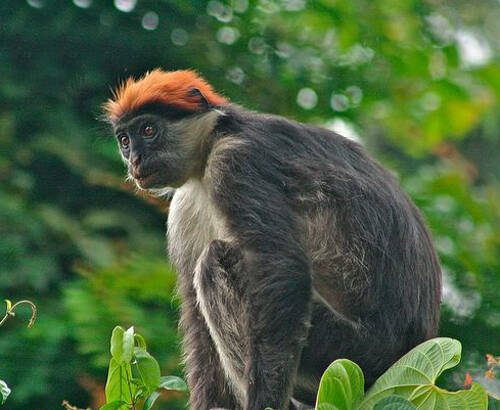
Udzungwa Red Colobus is diurnal. Inhabits primary and secondary forests from lowland rivers to mountains, semi-deciduous forests, mature evergreen forests, from 200-1600 meters above sea level. It is arboreal and moves quickly among its genus. The complex structure of its stomach has been adapted to digest leaves. It is completely vegetarian, eating large amounts of leaves every day, occasionally eating fruits, mosses and seeds, and the daily food intake can reach 2-3 kg. Occasionally, it will eat soil and charcoal to help digest toxins on the leaves.
Udzungwa Red Colobus Monkeys are composed of multiple males and females, each group has 7-83, but usually about 24. Living in highly degraded forests, food-scarce groups are believed to adopt a "fission-fusion" social system, in which larger groups will split into smaller groups to live.
Information on the reproductive biology of the Udzungwa Red Colobus is quite limited. Males reach sexual maturity at about four and a half years of age, while females reach sexual maturity at about four years of age, after which females are known to have a prominent pink swelling of the genitals during estrus. After the birth of the pup, the female takes full care of the pup, and the mother carries the pup for the first three months.
The distribution range of the Udzungwa Red Colobus is very limited, and the species is confined to the Udzungwa Mountains, including the Udzungwa Mountains National Park and several adjacent forest reserves. The population is believed to be declining, and the decline is due to the almost complete replacement of the local original forests with cultivated crops. The main threats are habitat destruction, reduced precipitation, tourism impacts, and road development, which have led to changes in the living environment. It has been listed as endangered.
Listed in the 2008 Red List of Threatened Species of the World Conservation Union (IUCN) ver 3.1 - Endangered (EN).
Protect wild animals and eliminate game.
Maintaining ecological balance is everyone's responsibility!

